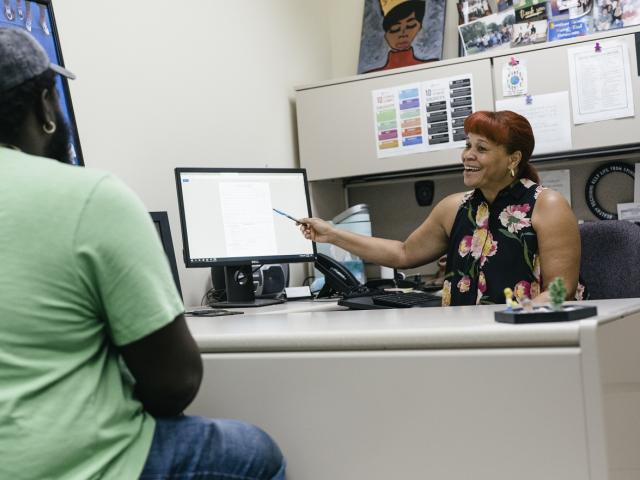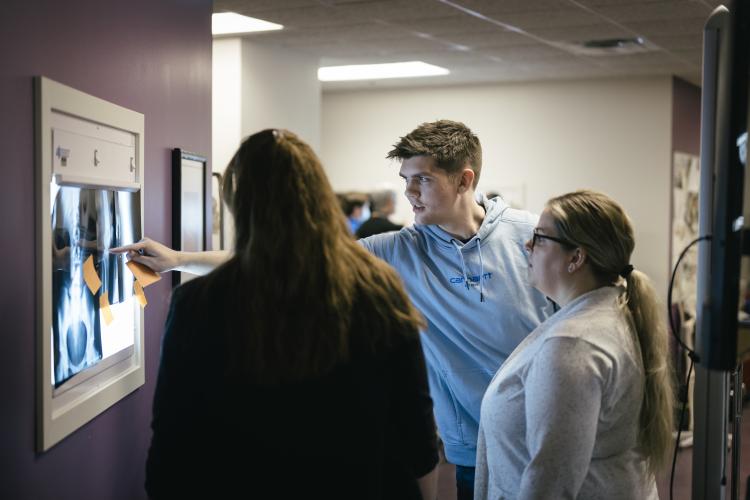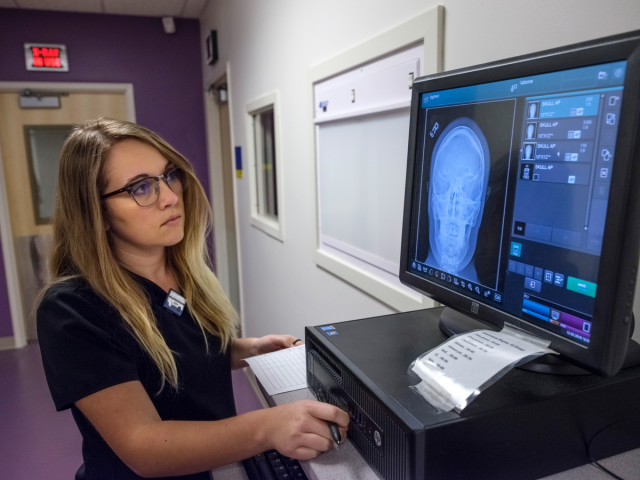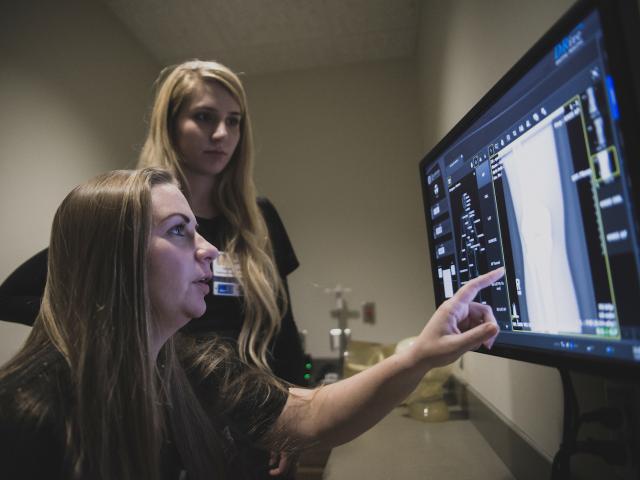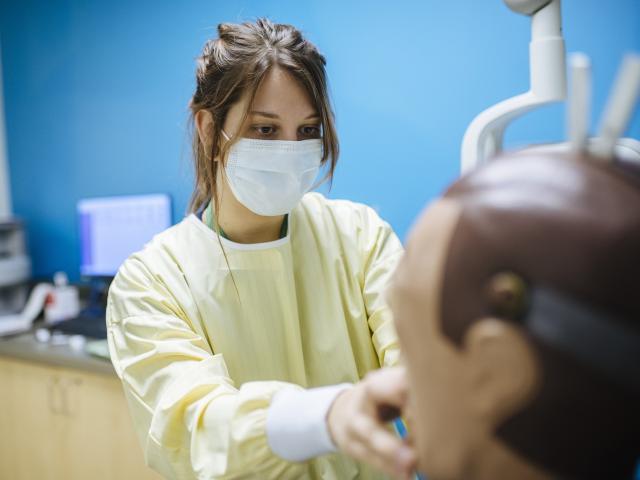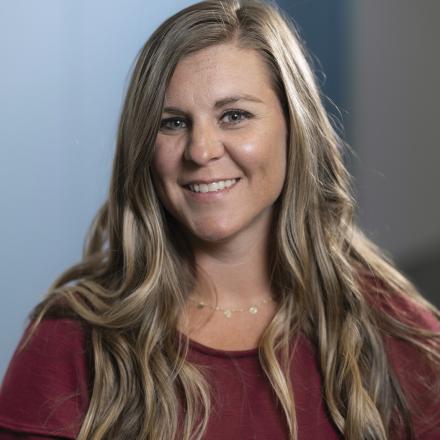Imaging Sciences is an exciting and vital field within healthcare that uses advanced technology to capture detailed images of the human body. These images play an essential role in diagnosing, treating and monitoring a wide range of medical conditions, supporting patient care with precision and expertise.
Our Imaging Sciences Department is home to several specialized programs, including Radiologic Technology, Magnetic Resonance Imaging (MRI), Computed Tomography (CT) and Neurodiagnostic Technology (NDT). Each of these disciplines prepares students to become highly skilled healthcare professionals who work at the forefront of medical imaging and diagnostics.
Whether you are interested in producing high-quality X-rays, capturing detailed MRI scans, performing advanced CT procedures or monitoring the brain’s electrical activity through neurodiagnostics, our department offers comprehensive education and hands-on training to help you succeed.
Join us in Imaging Sciences and become part of a dynamic profession that combines cutting-edge technology with compassionate patient care. Explore our programs and discover how you can make a meaningful impact in the ever-evolving world of medical imaging.
Why Imaging Sciences at GRCC
- Build the foundational skills needed to thrive in the ever-evolving healthcare industry.
- Gain practical experience through GRCC labs and off-site clinicals.
- Prepare for relevant licensing and certification exams.
- Learn about rewarding, in-demand career opportunities and network with healthcare professionals.
Areas of Study
Future Students - How to Apply
Events
Affirmative Action Statement
No student at Grand Rapids Community College is to be insulted, embarrassed, harassed, ridiculed, intimidated or in any way made to feel discriminated against because of age, gender, sexual orientation, race, religious preference, handicap or ethnic background.
Equal Opportunity and Non-discrimination Statement
Grand Rapids Community College is an equal opportunity institution and does not discriminate on the basis of gender, race, color, national origin, religion, height, weight, age, marital status, disability, sexual orientation, status as a disabled veteran or Vietnam Era veteran, and/or any other legally protected class not heretofore mentioned, in any of its education programs and activities, including admissions and employment. The above measures, in conjunction with other related state laws and the College’s policies and procedures, will assure all individuals opportunity for consideration or redress of complaints of illegal discrimination.
Affirmative Action, Equal Employment Opportunity, and American Disabilities Act information may be obtained from the: Human Resources Department Grand Rapids Community College 143 Bostwick Avenue NE Grand Rapids, MI 49503-3295, hr@grcc.edu, (616) 234-3972
Testimonial

Programs in this Department
Faculty & Staff
Leadership

